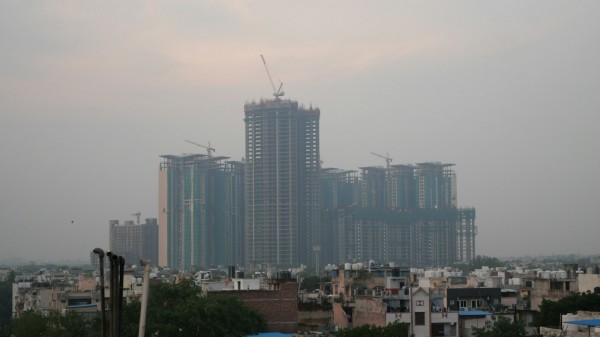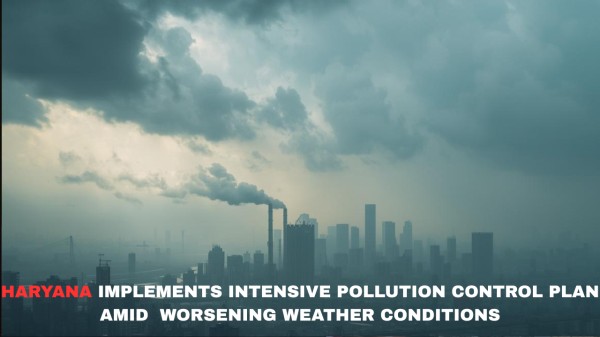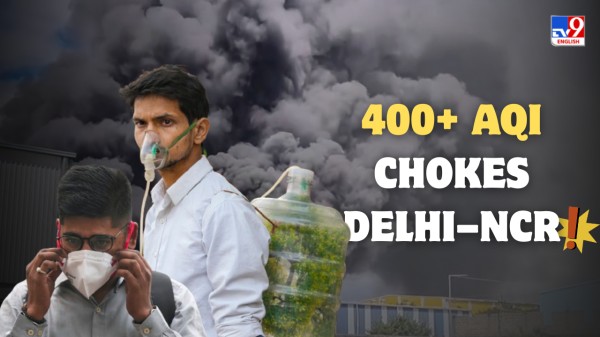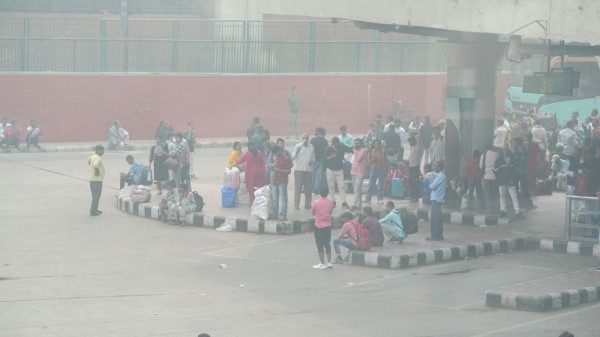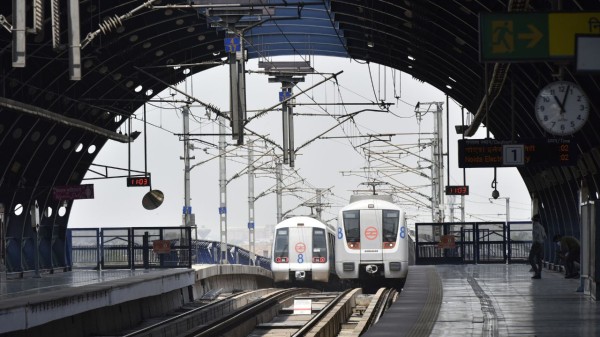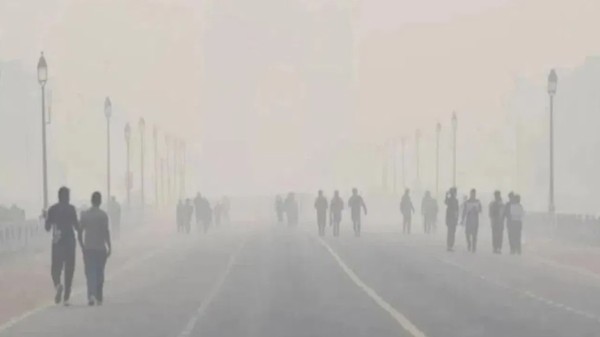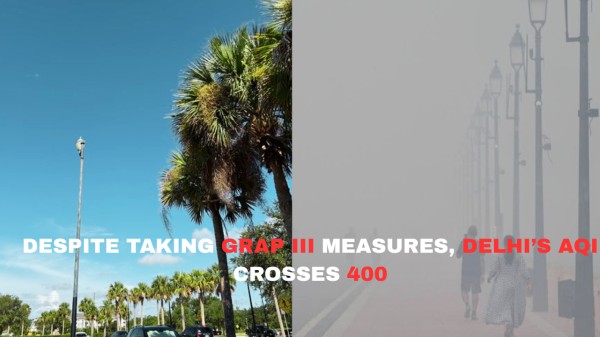

By signing in or creating an account, you agree with Associated Broadcasting Company's Terms & Conditions and Privacy Policy.


By signing in or creating an account, you agree with Associated Broadcasting Company's Terms & Conditions and Privacy Policy.

New Delhi: The air quality in Delhi and its surrounding areas deteriorated sharply on Thursday, with multiple monitoring stations across the National Capital Region reporting extremely poor levels of pollution. According to the Sameer App, Delhi recorded an average Air Quality Index of 400. Nearby cities reported similarly alarming figures, with Noida at 408, Ghaziabad at 427, Faridabad at 266, Gurugram at 302, and Greater Noida at 395.
A combination of thick smog and falling temperatures has intensified the crisis. Delhi experienced a morning low of 11 degrees Celsius and a daytime maximum of 27 degrees. The temperature drop has created conditions that trap pollutants close to the ground, contributing to dense, lingering smog. Weather forecasts also indicate the possibility of moderate fog, further reducing visibility and worsening air quality.
| Date | Min Temp | Max Temp | Weather Forecast | Warnings |
|---|---|---|---|---|
| 20-Nov | 11 | 27 | Moderate Fog | No warning |
| 21-Nov | 11 | 27 | Moderate Fog | No warning |
| 22-Nov | 10 | 26 | Shallow Fog | No warning |
| 23-Nov | 10 | 26 | Shallow Fog | No warning |
| 24-Nov | 9 | 25 | Moderate Fog | No warning |
| 25-Nov | 9 | 24 | Moderate Fog | No warning |
The deteriorating air has disrupted daily life, particularly affecting children and students. Many are struggling to breathe, prompting calls from parents and student organisations for authorities to shift all classes online. The Delhi government is considering implementing GRAP IV measures, which would trigger closures of schools and colleges, though an official notification on closures for today is still awaited.
Earlier directives had already moved online classes for students up to class 5. Parents and students have been urged to stay updated on the latest government announcements.
Medical professionals report a marked rise in health complications linked to the polluted air. Patients with pre-existing respiratory conditions, including asthma and chronic obstructive pulmonary disease, are experiencing more severe symptoms, with several requiring hospitalisation and ventilator support. Doctors have also observed slower recovery from common viral infections. Conditions that would normally resolve within a few days, such as coughs, colds, and mild fevers, are now lasting more than a week due to the toxic air.
The worsening pollution trend has developed over the past two to three weeks, heightening concern among residents and healthcare workers. Vulnerable populations, particularly the elderly, children, and those with chronic illnesses, are being advised to limit outdoor exposure and use protective measures such as masks and air purifiers. The city’s struggle with deteriorating air quality underscores the urgent need for long-term environmental and public health interventions.


